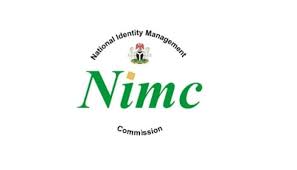Can Someone Use Your NIN to Withdraw Money from Your Bank Account?
In Nigeria, the National Identification Number (NIN) has become an integral part of the identity verification process, especially for financial transactions. With the growing emphasis on linking the NIN to various accounts, including bank accounts, many people wonder if their NIN could be misused. Specifically, there’s concern about whether someone can use your NIN to withdraw money from your bank account.
Understanding the National Identification Number (NIN)
The NIN is a unique 11-digit number issued to Nigerian citizens and legal residents by the National Identity Management Commission (NIMC). It serves as a means of identifying individuals and is often required for accessing certain government services, banking transactions, SIM card registration, and even for tax purposes.
The NIN contains personal information such as your full name, date of birth, address, and biometric data like fingerprints and facial recognition. This makes it a powerful tool for identity verification and access to various services. However, the question remains: Can someone with access to your NIN misuse it to take control of your bank account or withdraw your funds?
Can Someone Use Your NIN Alone to Withdraw Money?
The short answer is no. Your NIN alone is not sufficient for someone to withdraw money from your bank account. While the NIN is used for identity verification, banks and financial institutions require multiple layers of security to authorize transactions. Here are some reasons why:
- Multi-factor Authentication: Banks generally require more than just your NIN to access your account. In most cases, they implement multi-factor authentication (MFA) methods. This could include:
- PIN or Password: When withdrawing money, you need to enter your bank account PIN or online banking password.
- OTP (One-Time Password): Some banks send an OTP to your registered phone number or email when trying to access the account or make withdrawals.
- Biometric Verification: Certain transactions may require biometric verification like fingerprints or facial recognition.
- Bank Account Details: Having someone’s NIN does not grant access to their bank account details such as the account number or debit card information. Without this, a person cannot withdraw funds from the account.
- Transaction Monitoring: Banks have systems in place to monitor suspicious activities, especially if an attempt is made to access or withdraw money from an account using unusual methods. Any transaction that raises red flags would typically require additional verification, such as answering security questions or visiting the bank in person.
Risks of Sharing Your NIN
While someone cannot withdraw money from your account using just your NIN, it is still essential to safeguard this information. Here’s why:
- Identity Theft: Your NIN contains sensitive personal information that can be used for identity theft. Someone could impersonate you to open fraudulent accounts, apply for loans, or commit other financial crimes.
- Social Engineering: Fraudsters may use your NIN to trick you or your bank into giving away more sensitive information, such as your account number, password, or PIN.
How to Protect Your NIN and Bank Account
To minimize the risks associated with sharing your NIN, it’s crucial to take the following precautions:
- Avoid Sharing Your NIN Unnecessarily: Only provide your NIN to trusted institutions or services that require it for legitimate reasons. Be cautious when sharing your NIN online or over the phone.
- Monitor Your Bank Accounts: Regularly check your bank statements and transaction history to detect any unauthorized activity.
- Enable Alerts and Notifications: Set up SMS or email alerts for transactions on your bank accounts. This ensures you are instantly notified of any withdrawals or transfers.
- Secure Your Online Banking: Use strong, unique passwords for your online banking accounts. Avoid using the same password across multiple platforms and enable two-factor authentication (2FA) where possible.
- Report Lost or Stolen NIN: If you suspect that your NIN has been compromised, report it to the relevant authorities, such as the National Identity Management Commission (NIMC), and your bank.
What To Do If Your NIN is Compromised
If you believe someone has gained unauthorized access to your NIN or other personal details, take immediate action:
- Notify Your Bank: Contact your bank to ensure that your account is secure and that no fraudulent activity is taking place. They may advise you to change your passwords or PIN and monitor your account closely.
- Contact NIMC: Inform NIMC about the compromise of your NIN. While the NIN itself cannot be changed, they can assist in preventing further misuse.
- File a Report with Law Enforcement: If your NIN has been used to commit fraud or identity theft, report the incident to law enforcement for further investigation.
Conclusion
In conclusion, someone cannot use your NIN alone to withdraw money from your bank account. The banking system in Nigeria has several security measures in place, such as PINs, passwords, and OTPs, to prevent unauthorized transactions. However, it is essential to safeguard your NIN to avoid identity theft and other forms of fraud. Always be vigilant, monitor your bank accounts regularly, and take prompt action if you suspect any compromise of your personal information.
By being cautious and aware, you can protect your financial security and prevent fraudsters from taking advantage of your personal data
